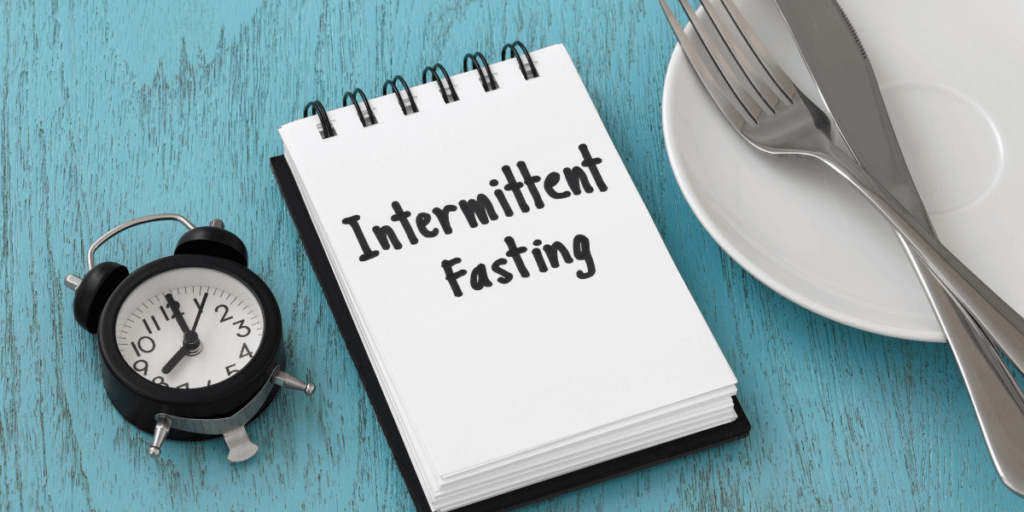Fad diets are extremely popular diets for weight loss and maintenance. Diets became popular in the 1900’s when a popular business man promoted a diet called the “chewing diet“. An overweight businessman named Horance Fletcher lost a ton of weight by chewing his food until it became liquid. Ultimately this caused him to feel full before by the time he had eaten his entire meal. Because he felt full, he did not go back for seconds thus allowing him to reduce his caloric intake.
Of all fad diets flooding the industry today, I feel most on board with the chewing diet!
As a nutrition coach, it is guaranteed that you will experience a nutrition client who is taking part in a fad diet. Whether it be the paleo diet, vegan diet, atkins diet, south beach diet or some other crazy diet plan.
In this blog post we will define, and help you navigate three top fad diets.

What Are Fad Diets?
Fad diets are any type of diet plan that promises a quick fix, and dramatic weight loss results. They are typically not based on sound nutritional principles, and can be unhealthy or even dangerous to certain demographics.
Sometimes of these fad diets can get quite crazy and recommend things like an all liquid diet, or suggest eating mass quantities of certain foods to help you lose weight quickly. An example would be the potato diet.
The potato diet is a fad diet that consists of eating only potatoes for two weeks to an indefinite amount of time, It promises a quick fix and requires consumers to cut out entire food groups from their daily intake. This can cause extreme nutrient deprivation and is definitely not a recommended diet for really anyone.

Many popular fad diets tend to push people to avoid certain healthy foods despite the fact the foods may be good for them. Consumers gravitate towards these diets because they are looking for rapid weight loss. In their desperate state they do not consult with a qualified health professional about their decision and these fad diets end up causing them health problems down the road.
How To Help Your Clients Identify A Fad Diet
Fad diets are identifiable in several different ways. Check out the list below!
Extreme and unsustainable restrictions
Fad diets oftentimes require consumers to eliminate entire food groups from their diet. To say the least it would be considered a strict diet. Like the potato diet we mentioned above, these restrictions are not sustainable and could cause health problems down the road.
Rapid weight loss promises
These diets hook consumers by promising rapid weight loss. I’ve read some fad diets claiming to help people lose up to 1o pounds per week. Losing weight quickly can happen in the beginning of a weight loss journey. With that said, a lot of times that fast weight loss is due to a reduction in water.
A healthy weight loss is between 1-2 lbs per week over an extended period of time.

Focus on supplements or specific foods
Be leary of any diet plan that asks consumers to buy supplements or specific foods. A lot of these diets are trying to sell their products and will claim that taking them helps people lose weight fast.
Lack of scientific evidence
Many fad diets claiming to be the end all be all lack scientific evidence. Or, the scientific evidence that is provided pertains to a certain demographic that doesn’t include your clients profile.
For example, in certain situations such as extreme obesity, the keto diet may be prescribed to help people lose weight quickly. It is prescribed because some individuals who are morbidly obese are at death risk if they don’t lose weight fast.
Your client on the other hand, needs to lose weight, but not at that rate of speed. Because this diet works short term for a certain demographic, your client takes it into their own hands to assume it’s ok for them too without contacting the proper healthcare professional.
Three Common Fad Diets
There are many fad diets that we see at Healthy Steps Nutrition. That being said the ones we experience the most are listed below. Hopefully this information can help you as a nutrition coach educate your nutrition client about these fad diets.

Fad Diet #1 - Intermittent Fasting
Intermittent means “sometimes”, and “fasting” means don’t eat. So, our definition of intermittent fasting is “sometimes you don’t eat”.
Some intermittent fasters will choose not to eat for an entire day or longer. This fasting period is followed by eating normally for an entire day and the cycle repeats itself.
But typically we see people who pick a time to eat during the day called an “eating window”. This is called the 16/8 Method and it is the most common. A sixteen hour fasting period is followed by an eight hour eating window.
Risk Factors
Intermittent fasting is not ideal for athletes who are competing or training to compete. Often times these competitions take place at times that could be outside of the feeding window when refueling is needed in order to maintain physical activity.
Certain studies have found that intermittent fasting may affect hormonal balance.
Potential Benefits
Weight loss may occur from being fasted and consuming less calories overall due to the fact there are fewer hours in the day that are allotted to eating.
Many studies have been done on intermittent fasting indicating both positive and negative effects. But many have been done on the effect it has on metabolic health that have been positive.
A Nutrition Coaches Role
If your client is intermittent fasting, your role as the nutrition coach is to work with your client to ensure they consume adequate calories & micronutrients during their daily “feeding window”.
Focus on whole foods and plate balance. Another key aspect is to make sure they stay hydrated during their fasting period.
Fad Diet #2 - Ketogenic Diets

Some of your clients may come to you stating they have done ketogenic diets. A ketogenic diet is a diet where minimal to no carbohydrates are consumed that causes the body to go into ketosis.
Ketosis is a backup process that converts fatty acids into fuel. Your body basically burns fat for energy instead of carbohydrates. With this diet typically 6o-75% of calories come from fat, sometimes more, with only 15-30% of calories coming form protein foods and 5-10% coming from carbs.
Risk Factors
There are some short term benefits associated with this fad diet however most risk factors outweigh the benefits. They can reduce weight loss initially in some populations however long term there is no advantage for metabolic health or weight loss.
For the short term gain, risks such as increased cholesterol, increased risk of cardiovascular disease, cancer and Alzheimers due to increased intake of saturated fat is not worth it.
Potential Benefits
As linked in the study above, there are some short term benefits such as weight loss for some clients. Additionally mental clarity has been a short term benefit for people traumatic brain damage, epilepsy and brain damage.
A Nutrition Coaches Role
Encourage your clients to eat lean meats low in saturated fats. Help them focus on getting fat from plant based foods rather than all animal products. Also try to encourage your clients to focus on whole foods rather than the “keto” processed foods.
Food product labels can be very deceiving and many products labeled keto are highly processed foods.
Fad Diet #3 - Counting Macros

Some consider counting macros a fad diet, others do not. Regardless as a nutrition coach if you experience clients who are set on counting macros this guide will help you navigate the obstacles associated with this form of food control.
Counting macros simply means counting the exact amount of calories and macronutrients that you put into your body. This means that clients are allotted a certain number of carbohydrates, proteins and fats each day. Every time they eat, they log the amount of each macro they have consumed. I like to say every BLT is logged! Bite, Lick and Taste!
Risk Factors
There are many issues with adherence when counting macros because it’s not simple. Logging is very time consuming and in order to be accurate, all food must be weighed. The problem is that most people don’t actually weigh their food when counting macros. This leads to portion sizes being underestimated and huge inaccuracies around the amount of food that is logged.
Many times the focus when counting macros isn’t on the actual quality of foods or healthy eating. The focus is simply making sure you are hitting your macros, regardless of your food quality.
Additionally we see disordered eating habits arise from counting macros as there is too much focus on the numbers. Clients will “save” macros in order to have enough calories at the end of the day to splurge or binge. In the situation that someone has an unhealthy relationship with food, disordered eating habits can begin to happen.
Potential Benefits
When done correctly, this diet is well balanced with proper macro distribution. People also begin to understand nutritional values associated with different types of food groups. And for analytical clients, this can be very pleasing.
Improved athletic performance is also prevalent when people count macros correctly. This is because the focus is on food quality and they are getting a good balance of proteins, carbs and fats.
A Nutrition Coaches Role
As a nutrition coach you should be mentoring your macro counting clients to focus on the quality of their food choices and not just “meeting their macros”. Have clients strive for progress over perfection when logging and begin with one meal at a time.
Remember, in order to be accurate, all food must be weighed and measured before it’s logged.

Additional Tips For Fad Diets
Always remember to take a client centered approach. Lead with compassion, curiosity and clarity when a client comes to you wanting to start a fad diet. Be mindful of your body language when asked about fad diets and utilize outcome based decision making.
Try making it an experiment if your client comes to your wanting to test out a fad diet. Work with them and have them report back their experience after a week. Definitely be an advocate for science and data. The realistic rate of progression for clients should never be sacrificed.
Nutrition coaching is all about accountability and support! Help your clients live a healthy lifestyle by educating them on whatever the diet is that they think they want to try. And be there for them when it probably doesn’t work out.




